Check out some books by your tutor Fiona Veitch Smith … (click on the book covers to find out more)
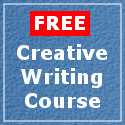 Hello everyone, welcome to the first session of our free online creative writing course. Over the next eight sessions we will be looking at different aspects of creative writing and trying our hand at various forms. I’d strongly encourage you to have a go at the exercises along the way, and please feel free to leave comments or ask questions at the end. If you have arrived on this page without first reading the home page and frequently asked questions page (on tab above) please go back and do so now. If you have read them, enjoy the course!
Hello everyone, welcome to the first session of our free online creative writing course. Over the next eight sessions we will be looking at different aspects of creative writing and trying our hand at various forms. I’d strongly encourage you to have a go at the exercises along the way, and please feel free to leave comments or ask questions at the end. If you have arrived on this page without first reading the home page and frequently asked questions page (on tab above) please go back and do so now. If you have read them, enjoy the course!
Creativity and Art
What is creativity? The Collins dictionary defines it as ‘the ability to cause something to exist’. Without getting into too much of an existential discussion, I would say that with every thought that is expressed, something has been created. It was Descartes who said: ‘I think, therefore I am’; well I would add, ‘I think, therefore I create’ (do you feel a God complex coming on?). But how do we express our thoughts? Sometimes we do it verbally, other times by body language and still again through what is loosely termed ‘art’.
Art takes place when a thought is expressed and fixed in a way that other people may experience it on an aesthetic level – through music, writing, painting, sculpture, choreography and so on. Many artists say that their best work takes place when they ‘by-pass’ the thought and simply express the feeling. This may be true, but for writers, who use a verbal medium, a feeling must first be converted into a thought before it can be put into words. Don’t over analyse the thought before you express it, as this way you can ‘channel’ the purest interpretation of the feeling, but some cognitive process needs to take place. Some writers prefer to mull over a thought and give it form before they put pen to paper – I’m one of them – but it’s good practice to try and switch off the ‘editor’ at least for the first draft. First response trigger exercises are useful in this regard and can release some unexpected words and images.
Exercise 1:
Write down your first response to these words or phrases:
- Blue ball
- And that’s when the sadness came
- Coffee
The first task of a good writer is to convert feelings into thoughts and then into words. This is the raw material that can then be converted into something more permanent. Some writers refuse to toy with their first drafts, believing their creativity will be diluted; I disagree. Allowing your critical mind to improve a piece of writing is where the craftsman meets the artist. Something produced only by the former will lack soul and something by the latter will lack form. Good writing is a combination of art and craft.
For public consumption
Art, of course, is highly subjective and one woman’s masterpiece is another woman’s unmade bed. We all have the ability to create, but whether or not our creation is ‘art’ must be left to the eye or ear of the beholder.
In this session we will look at how you can craft those creative thoughts into creative writing to share with other people. And that’s what sets ‘public’ writing apart from ‘private’ scribblings – there’s a perceived readership in mind. When I ramble on in my journal, I am the only one who will read it (hopefully!) so my only concern is getting my thoughts down on paper. The moment I want someone else to read it I begin to consider ways to improve the presentation and craft it into something more aesthetically pleasing. I consider which words may sound more colourful, whether or not my sentence structure is grammatically correct, whether I’m using evocative imagery, and so on.
Story, feeling or image?
What is it about those creative thoughts that you think might be of interest to other people? Do they speak of an eternal truth or a common experience? Do they make you laugh or cry? Do they suggest a story that will entertain or a poem that captures a moment that must be shared?
Exercise 2: In 50 words or less write down why you want to write then list three creative thoughts that you’ve had lately (each 10 words or less). These may be an image, a musing, a ‘truth’, a story, or so on. If you haven’t had any, take yourself for a walk and look around; what grabs your imagination? Browse through a newspaper or a magazine; do any stories or pictures catch your attention? Think back over your day; did anything funny, charming, shocking or unusual happen to you or someone you know?
Poetry or prose?
Some people are more suited to writing poetry than prose and some people do well at both. Although we won’t be discussing it in this course, other people are more suited to script. I’m one of them. I’ve had relative success as a prose writer and in fact have managed to earn a living from it, but it’s taken years of hard work to get to this point. I recently branched out into scriptwriting and found that I had much more of a natural ability. (If you’re interested in finding out more about scriptwriting, check out getting started in playwrighting). You may find that you’ve been trying to make it as a poet when actually you’re more suited to prose. Now I don’t want to pigeonhole anyone, but ask yourself the following questions:
- Are you more attracted to films than stills?
- Do you enjoy telling people ‘stories’ from your life?
- Do you prefer to read stories or poems?
If yes, to these, then you may be more suited to prose than poetry. If no, then the opposite may be true. If it’s ‘sometimes yes, sometimes no’ then perhaps you are suited to both. We shall be looking at how to write poems in more detail in session 7, but suffice to say, a poem is like a snapshot of a moment. If you can’t rest until you know what happened before and after, then prose may be your genre.
Exercise 3: Take one of the three creative thoughts you wrote down in Exercise 2, then list 20 separate words that communicate or describe that thought. Do not, at this stage, link the words into sentences. Once you have your 20 words use them in a poem of 16 lines or less. Then, take the same 20 words and work them into a short story of under 300 words. Which exercise came more easily? Which form has best communicated your creative thought?
Further Resources:
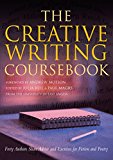
There are some excellent resources out there for creative writers. To get quick ‘starter’ images when your own well is dry I recommend The Writer’s Block by Jason Rekulak. I’m currently working through The Creative Writing Coursebook by Julia Bell and Paul Magrs and finding it very useful.
The next creative writing course session is how to write a short story. But before you move on to that, please feel free to leave a comment or ask a question in the box below.
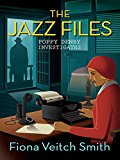
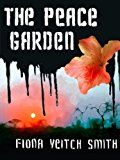
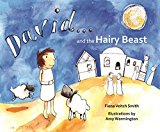
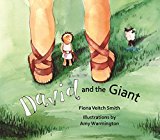
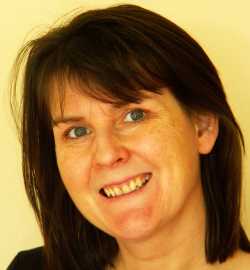 Welcome to The Crafty Writer's free online creative writing course, presented by Fiona Veitch Smith, a freelance journalist, editor, author, playwright, screenwriter and writing teacher. I hope that you'll see a dramatic improvement in the quality of your writing as you work through this course.
Welcome to The Crafty Writer's free online creative writing course, presented by Fiona Veitch Smith, a freelance journalist, editor, author, playwright, screenwriter and writing teacher. I hope that you'll see a dramatic improvement in the quality of your writing as you work through this course.
Hello, is this class still active?
Hi Tina, Yes it is. You don’t require any input from me, just get started. Go to the contents page and just work your way through it in your own time. Happy writing! Fiona.
Beautiful hints and realities of the human mind concerning writing.Thank you.
I really enjoyed writing the 20 words describing my thoughts and feelings and them weaving them into a poem. Thank you
It looks like this course was posted some years ago and I am glad I stumbled upon it! This session was fun and informative. I was a little nervous about doing the exercises at first, but I took this course to help me get over my fears. The exercises pushed me to just go for it, and it feels amazing having completed this session. It was short sweet and to the point! Thanks for creating a free, and valuable resource for writers who need a little nudge to spark the fire that’s burning deep within.
I just started this course and am already finding it stimulating. I very much appreciate the free content, the exercises and book suggestions.
Am interested in studying the free sessions of this course.
Thank you for providing this course.
Thank you so much for creating this mini-course. I’m really enjoying that it gets me jumping into writing, thinking about where my strengths are, and practice new skills. This is a fantastic resource!
Only three lessons in and I am TOTALLY intrigued!
Your information is very inspiring!! I look forward to reading more, and completing more exercises. Trying to prepare to create a portfolio.
OMG!! The articles I read on copy writing and screen writing were of great interest!! I am so glad I found your website. “Free” just hiked my interest over the top (LOL).
Loving this class already
Thank you for these exercises.I have never written poetry before.But exercise 2 very easily brought out a simple beautiful poem. I tend to think too much when I want to write and seeing the words helped me to bypass the thinking.
Fiona,
Your website has been a good find for me. Thank you for offering this free course. I have been doing some writing recently, mostly memoir stimulated by Julia Cameron’s Artist’s Way books. But, I wanted to move beyond the memoir to writing short fiction…and was stuck. The discussion in this first session was helpful; I enjoyed the exercises, and am looking forward to the next session.
You’re welcome. And happy writing!
Wow, I have not written a story since school…the 300 word story came easily but i backed out of the poem.
I could not possible get past 30 words without great struggle…so I guess that poetry is certiainly not for me.
After quite a bit of googling for a free creative writing course online, this one came up in the recommendation. Having done the first module/section, I’m excited to continue doing this. I’ve always said I want to write and all I’ve done is talk about it. Even from this early in the course, this course has been so helpful in helping me with the skills but also regain my confidence in doing this. Thank you so much for doing this Fiona.
Stumbled across this ‘by accident’ through a bit of a circuitous route but so glad I found it! Been a bit stuck – loads of ideas, some started on paper but quickly get disheartened. So, am hoping this will be the remedy
This was a ton of fun! I was pleasantly surprised that the poem exercise seemed easier to accomplish than the story. I guess because you can leave out words and explanatory words – and still get the meaning across.
Thanks for providing this free opportunity.
Hi Fiona ,
I just want to let you know I started the course and and I really enjoy it especially exercises are very useful .I have finished exercise 3 and looking forward to do the rest of the lessons. English is my second language and your lessons gives me motivation and courage to write in English also, which l really enjoy.
Thank you
You’re welcome, Sevil. Glad you’re enjoying it. Happy writing! Fiona x